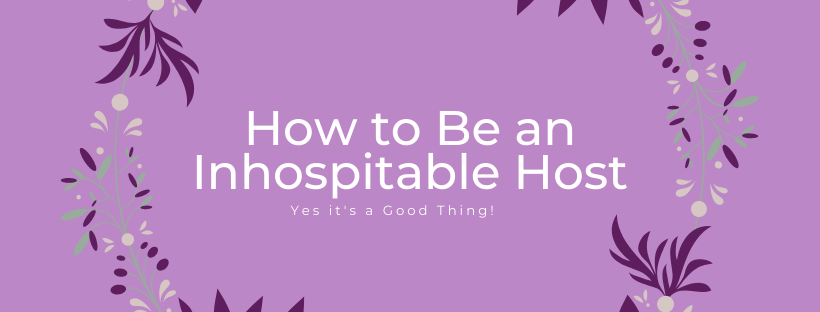Host immunity. What does that actually mean? Is it a good thing or a bad thing? We are going to be hearing a lot about it very soon. When faced with a pandemic, epidemic, or even the annual flu working its way through your household or workplace, why is it that some people get sick and others don’t? It’s a matter of host immunity. It’s not the bug that’s bad, after all, it’s just trying to survive. Depending on your lifestyle habits, your epi-genetics (how well you treat yourself), and yes even your attitude and moods, you could be more or less protected from these invaders. If you present as an “inhospitable host” the bug (virus, bacteria, parasite) will barely have an affect on you as it will be attacked and destroyed by your immune system in a very effective way. I say we should all be trying our best to be inhospitable hosts.
Sometimes though, regardless of how well we are doing with our diet and exercise, as we go about our daily lives, we find ourselves dealing with an infection of one type or another. Maybe it’s a sinus infection, a urinary tract infection, Small Intestine Bacterial Overgrowth (SIBO), the flu, shingles, and the list goes on. While there are many ways to support the immune system, herbs are an effective way to support your immune system and give you some peace of mind that you are actively giving your body the phytonutrients you need to be a strong host and fight off any infection that comes your way. For centuries we have been encouraged to use food and herbs as medicine:
“Let food be thy medicine, and medicine be thy food.”
~Hippocrates
It’s nice to know that you’re taking a proactive approach to health, backed by historical and clinical evidence, by applying antiviral, antibacterial, and antiparasitic remedies. So let’s look at food and spices that we can find at home or at the grocery store or farmers market that can support the immune system.
- Garlic: Antiparasitic, antifungal, and antibacterial. 1 clove per day (Crushed is best)
- Thyme: Antibacterial (especially E. Coli), both inside and outside the body.
- Marjoram: Antibacterial, anti fungal, antiseptic. Colds, flu, food poisoning, thins mucus. In a diffuser.
- Ginger: Viruses of the respiratory tract. Put it in your water, or food.
- Coconut water: Anti fungal, anti viral, anti bacterial. Put it in a smoothie, or drink, rich in potassium.
- Pumpkin seeds: Provide zinc which is anti viral. Sprinkle on salads, or eat as a snack.
- Black tea: Anti viral, anti bacterial, anti fungal.
- Sage: Anti viral. Can be used as a tea.
- Andrographis: Potent antiviral, reduces lung pathology and anti inflammatory.
- Turkey tail mushrooms: Blocks the ability of the virus to be absorbed into the cells. Improves your immune system communication.
- Licorice root: Anti viral, immune stimulating and sore throat remedy.
- Astragalus: Anti viral, being used as an immune enhancer and preventative.
One thing to remember as you travel down this path of supporting your own health, and assuming responsibility for the way your body deals with pathogens is that we are really so much more capable of healing than we have been led to believe. We can proceed with courage and trust the treasured remedies of past generations to provide ourselves and families with safe and affordable healthcare.
Next time you go to the store, look for a tea or herb that you could incorporate into your daily routine when you need a little immune support. Some of my daily favorites are ginger, sage, thyme, and garlic. If a tablet is more your style, I have supplements that incorporate many of the above ingredients into powerful immune support products.

